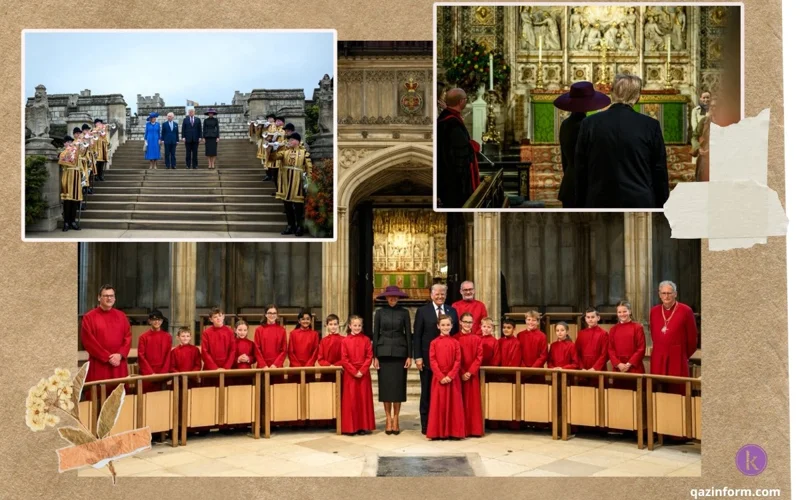Trump’s second state visit to Britain highlights economic and diplomatic engagements
U.S. President Donald Trump concluded his second state visit to the United Kingdom, an event marked by ceremonial protocol, high-level meetings, and discussions on trade, technology, and energy, reports a Kazinform News Agency correspondent.

During a state banquet, President Trump described the US-UK relationship as “unbreakable.” The visit included a royal welcome, red carpet ceremonies, and meetings with Prime Minister Keir Starmer and King Charles, emphasizing the importance of continued collaboration on security and economic matters.
A major outcome of the visit was the “Tech Prosperity Deal,” which includes £150 billion ($203 billion) in planned investment from US companies over the next decade. Approximately £31 billion is intended to support Britain’s AI and technology infrastructure, while the majority of the investment, £90 billion, comes from private capital firm Blackstone. Government officials estimate the initiative could create around 7,600 jobs.
The US and UK also agreed on measures to support the development of nuclear energy projects in both countries, reflecting continued cooperation in the energy sector. Discussions highlighted the role of domestic energy supply in powering emerging technology infrastructure, including AI data centers. Nvidia CEO Jensen Huang, who also attended the state banquet, emphasized the importance of increasing energy capacity in the UK to support these initiatives.
While the UK government emphasized the significance of the agreements, some analysts expressed caution. Nick Clegg, former UK deputy prime minister and former Meta executive, noted that the technology deal largely consolidates previously announced private sector investments.
On trade, the US maintained a 10% tariff on most British goods. Britain secured a post-tariff trade agreement with the US, but plans to remove the 25% steel tariff were postponed. Analysts indicated that the economic effects of the agreements are likely to materialize over the longer term.
In foreign policy, the Prime Minister and President Trump discussed global security, including the Ukrainian crisis and the Israeli-Palestinian conflict. No new commitments were made, but officials emphasized the importance of continued dialogue.
Observers also noted a growing interest in US-style political movements in the UK. Nigel Farage, leader of the Reform UK party, has voiced support for policies similar to those promoted by President Trump.
Earlier this month, more than 100,000 people took to the streets of London to protest against immigration, with some protestors wearing MAGA-style hats and carrying U.S. and Israeli flags. The demonstration reflects the visibility of American political symbols in UK domestic debates.
